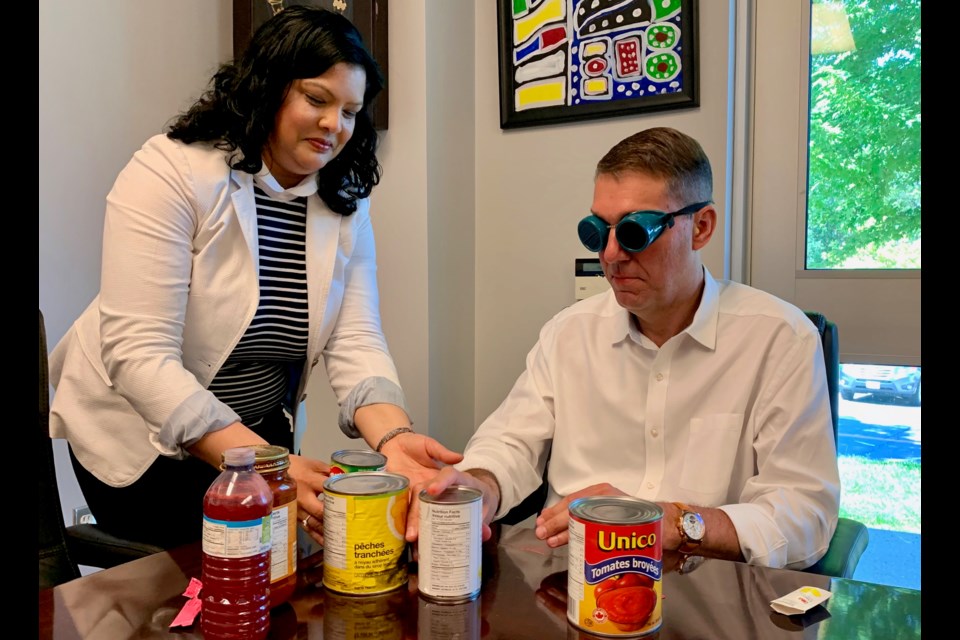For a few minutes, it was a world without sight and sound for Newmarket Mayor John Taylor, but it was enough to open his eyes to the need for more inclusivity for the deafblind.
Wearing goggles and earplugs, the mayor attempted a few everyday activities — including filling a water bottle with drink crystals and identifying a can of vegetables through touch only — in a simulation exercise aimed at increasing understanding of what it is like to be deafblind during June’s National Deafblind Awareness Month.
The experience was eye-opening in terms of accessibility issues for deafblindness, said Taylor, who is chair of Housing York and has been a member of the town and regional accessibility advisory committees.
Don’t want to miss any local news? Sign up for our daily headlines email
“Thinking about accessibility through a sensory lens has not been a dominant conversation,” he said.
“Public housing, which serves a higher proportion of residents with disabilities, needs to be aware of these higher standards of accessibility.”
Deafblindness combines varying degrees of both hearing and vision loss, making it unique to individuals and requiring specialized support, according to Karen Madho, senior coordinator of public relations for DeafBlind Ontario Services.
The simulation exercise underlines the vital role played by intervenors, the specially trained professionals who, through the sense of touch, act as the “eyes” and “ears” of the individual who is deafblind.
Members of the deafblind community are advocating for a level playing field for intervenor services across Canada, Madho said.
While intervenor services are available in Ontario, that’s not the case in other provinces, she added.
The newly passed Accessible Canada Act (Bill C-81), Canada’s first national accessibility law, unfortunately does not include intervenor services, Madho said.
“Individuals with deafblindness have the capacity to build their life skills, gain independence and contribute to the greater community with the support of professional intervenors,” she said.
About 1 per cent of Canadians — 368,412 people — are living with deafblindness, according to the 2016 census, Madho said. About 12,000 York Region residents are deafblind.
And 22 per cent of residents of long-term care facilities in the province have dual sensory loss according to LHIN statistics, a number that will continue to increase as the aging population grows, she added.
In York Region, Ontario DeafBlind Services supports residential programs and partners with other organizations, such as Community Living, to provide needed training and services, Madho said.
Taylor, who readily admits to “doing everything in a rush”, acknowledged the loss of confidence and fear of making a mistake in doing simple tasks that came with the loss of sight and sound during the simulation exercise.
It highlighted his understanding and respect for individuals who are deafblind or have multiple disabilities in regards to the patience and perseverance required to do everyday tasks and “how hard it must be to struggle against feeling a lack of confidence or not feeling smart … just because these barriers make it that much more difficult, but it’s got to be a mental challenge, too, in terms of persevering and staying positive.”
“Whether the person is deafblind or has intellectual disabilities or multiple disabilities, it’s recognizing those people in our community need supports and respectful community engagement,” Taylor said.
National Deafblind Awareness Month, which was proclaimed by the Canadian Senate in 2015, is held in June because it is the birth month of Helen Keller, one of the most internationally recognized persons with deafblindness.



